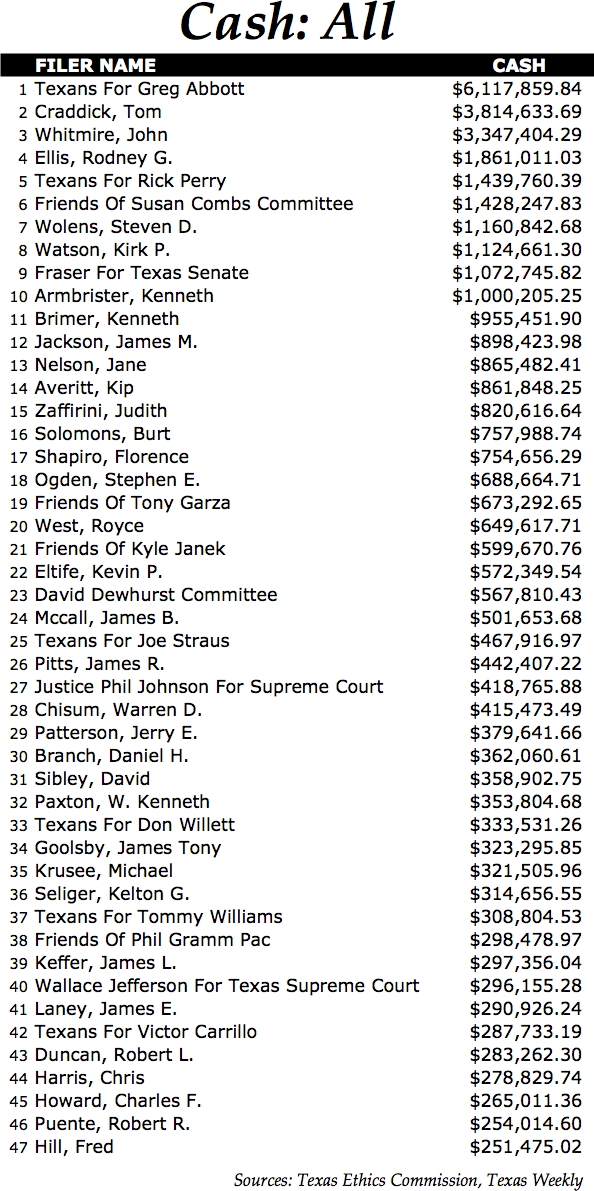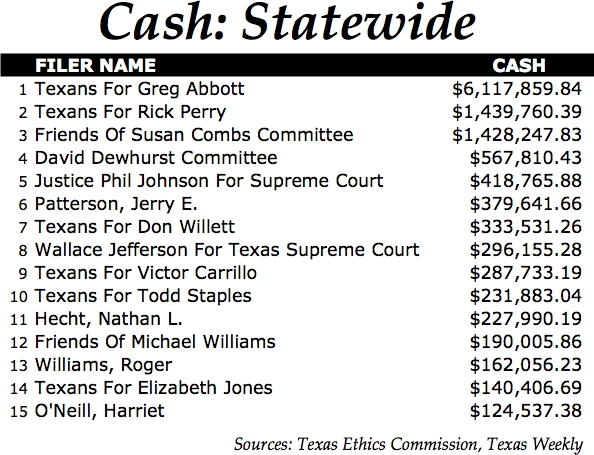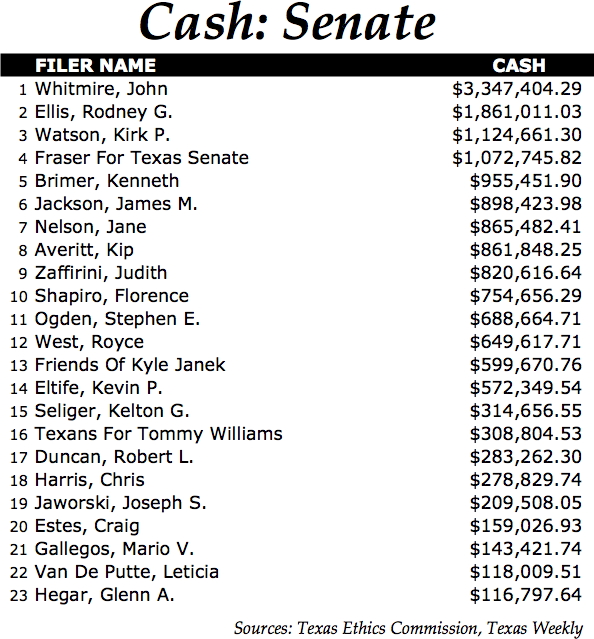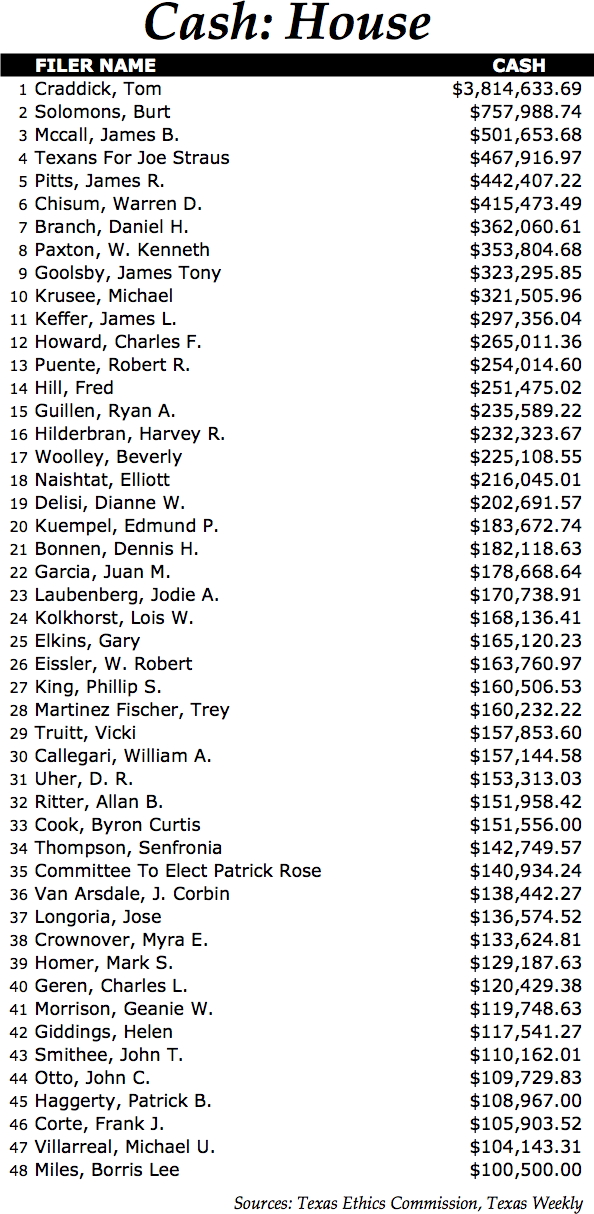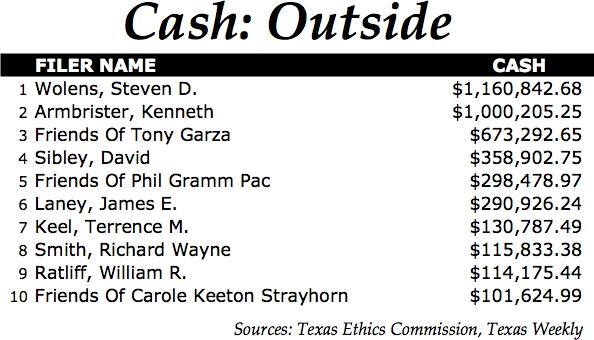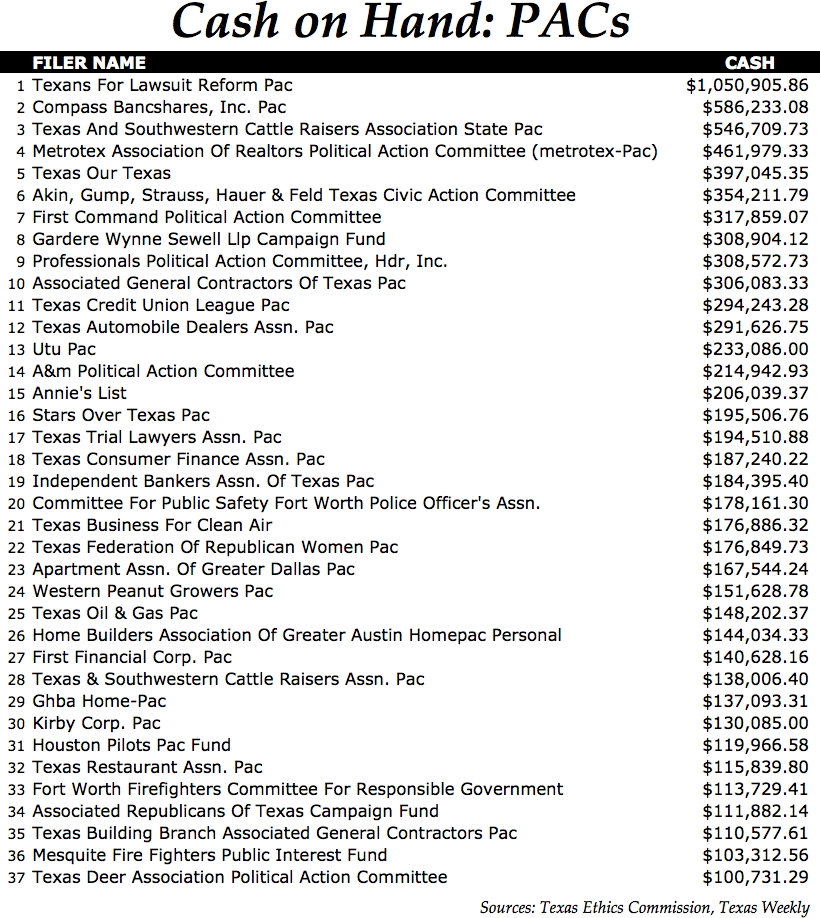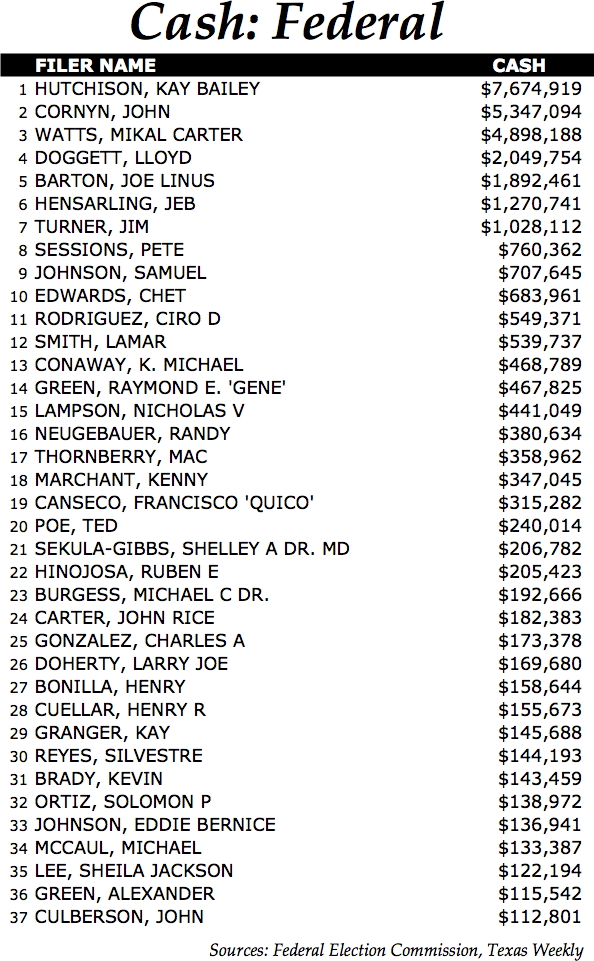Bloggers are busy with rumors on the Republicans' race to reclaim Tom DeLay's former congressional seat, now held by Democrat Nick Lampson. They also took shots at other contests around the state, Kay Bailey Hutchison and God. Wrapping it up: A motion picture pastiche.
* * * * *
.22-Caliber
Half-Empty describes the six GOP "vultures" vying for the U.S. Congressional District 22 seat now belonging to Lampson, formerly held by DeLay.
Burnt Orange Report says state Rep. Robert Talton should secure the GOP nomination easily, based on his opposition to House Speaker Tom Craddick, Sheila Sekula Gibbs' "crazy" behavior, and the absence of several local big-name Republicans, adding that Republican Ken Legler will seek the HD144 seat vacated by Talton. Professors-R-Squared says an HD-144 race "does bear watching."
Off the Kuff muses that incumbent Lampson could choose to attack Talton "from the right on some things" if he faces the attorney in November, while Texas Kaos says Talton would be a great "whipping boy" for District 22 voters looking to repudiate "Republican rightwingers."
Texas Observer blog posts that the statehouse will be a quieter place after Talton's departure, that Talton won't be afraid to beat up on his GOP opponents, and that Lampson will benefit from this, no matter who wins the primary. Texas Politics, the Houston Chronicle's blog, reports that Allen Blakemore will run Talton's campaign.
* * * * *
It Doesn't Hurt to Ask...
Half-Empty drafts an open letter to Mikal Watts, warning the Democratic senatorial candidate about the dangers of being Tony Sanchez, then asking the Corpus Christi attorney for $10,000.
Burnt Orange has an update on the status of the Rick Noriega Express.
McBlogger calls out San Antonio Current editor Elaine Wolff, a purported Noriega basher, for failing to disclose that her husband donated $2,300 to Watts.
Melissa Noriega, a Houston city councilwoman, is stumping in her husband's stead while Noriega is doing his two weeks of training for the National Guard, says Texas Politics.
Responding to news that freshman state Rep. Mike O'Day, R-Pearland, is resigning, Kuff posts that O'Day could contend for the title of shortest-tenured Texas House member, and that January runoff loser Randy Weber, a Republican, would be a shoo-in to replace O'Day. Not so fast! posts Texas Safety Forum, referring to rumors circulating that O'Day will serve out the rest of his term.
Burnt Orange reports that Tarrant County Democratic Chair Art Brender is not running (yet) for the State Senate District 10 seat, held by Republican Kim Brimer, leaving Wendy Davis as the sole Democratic challenger.
Meanwhile, Capitol Annex is chewing over old news, that Democrat Diana Maldonado, a Round Rock school board member, will challenge Republican Mike Krusee, R-Round Rock, for the House District 52 spot.
* * * * *
Going West
Texas Politics follows U.S. Senator Kay Bailey Hutchison on her West Texas road trip, where she encountered barbs at Texas Tech, one question in Lubbock and the Lions Club in Lamesa. Kuff isn't receptive to Hutchison's assertion that she doesn't enjoy financial stability, and Greg's Opinion is that Texas Politics pandered too much to Hutchison.
* * * * *
Two Little Words
Capitol Annex gives some background on the Religious Viewpoints Antidiscrimination Act, concluding that this will end up in court. Chronic, the Austin Chronicle's blog, reaches the same conclusion, without the background. Texas Observer says the law was written by one Kelly Coghlan, "a lawyer who makes a living suing school districts for curtailing students' religious expression," (and concludes this will end up in court).
Texas Blue takes issue with what they see as a McCarthy-esque insertion of the phrase "under God" into the state's pledge, and wonders why Texas has a state pledge in the first place.
* * * * *
Now Showing
American Graffiti: Grits for Breakfast continues his examination of the practice of spray painting public structures, here, here and here.
Dangerous Minds: Having trouble with students? Mike Falick's Blog has a number you should call.
Dirty Dancing: Houstoned makes the case for a Patrick Swayze High School in Houston.
Double Impact: starring Cap Metro, which is planning to raise bus fares 100 percent in 2008, via Austinist.
Fantasy Island: Diebold! Diebold! scream Chronic and Kaos. The ATM maker is spinning off its electronic voting division under the moniker Premier Electronic Solutions.
Out for Justice: Judge Susan Criss lists the blogs she peruses, via Grits.
Rodger Dodger: Rove improperly used his status as a student to avoid the Vietnam War draft, accuses Rhetoric & Rhythm. Oh, and he cheats on his taxes, too.
Fatal Attraction: "Why the Press Loved Karl Rove," by Burnt Orange.
Last Tango in Paris: Houstoned writes about a growing gang in Houston.
Madame Butterfly: Houstoned sits down with Maestro Willie Anthony Waters.
March of the Penguins: UTSA researchers going to Antarctica, says Walker's Report.
Moby-Dick: This oracle predicts your personality based on your Starbuck's preference, courtesy of Professors-R-Squared.
This edition of Out There was compiled and written by Patrick Brendel, who hails from Victoria and finds Austin's climate pleasantly arid. We cherry-pick the state's political blogs each week, looking for news, info, gossip, and new jokes. The opinions here belong (mostly) to the bloggers, and we're including their links so you can hunt them down if you wish. Our blogroll — the list of Texas blogs we watch — is on our links page, and if you know of a Texas political blog that ought to be on it, just shoot us a note. Please send comments, suggestions, gripes or retorts to Texas Weekly editor Ross Ramsey.


